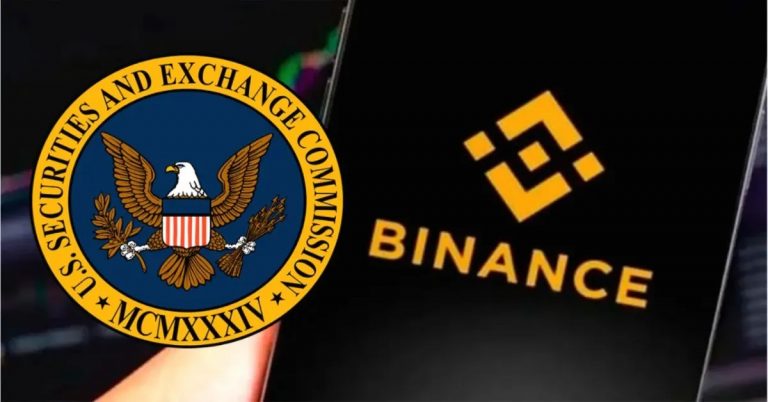
U.S. Securities and Exchange Commission (SEC) has agreed to drop the lawsuit against the cryptocurrency exchange, marking a significant development in their two-year legal battle. Court documents show that both parties signed a joint stipulation to end the case, which was initiated in June 2023. The SEC had accused Binance and its founder, Changpeng “CZ” Zhao, of artificially inflating trading volumes, diverting customer funds, and misleading investors about market surveillance controls.
Following the dismissal, posts on X surfaced where CZ appeared to troll former SEC Chair Gary Gensler, who had been a vocal critic of the crypto industry, often referring to it as the “Wild West.” One post from @WatcherGuru on May 29, 2025, highlighted CZ’s remarks, suggesting he took a jab at Gensler after the lawsuit was dropped. Another post from @CryptosR_Us on the same date echoed similar sentiments, noting CZ’s comments as a playful jab at Gensler.
The dismissal comes amid a shift in U.S. crypto policy, with President Donald Trump nominating Paul Atkins, a crypto-friendly lawyer, to replace Gensler as SEC chair. This change, along with a 60-day pause in the lawsuit requested in February 2025, reflects a potential softening of regulatory pressure on the crypto industry. The dismissal of the SEC’s lawsuit against Binance has significant implications for the cryptocurrency industry, regulatory landscape, and public perception, while also highlighting a deepening divide between crypto advocates and traditional financial regulators.
Register for Tekedia Mini-MBA edition 19 (Feb 9 – May 2, 2026).
Register for Tekedia AI in Business Masterclass.
Join Tekedia Capital Syndicate and co-invest in great global startups.
Register for Tekedia AI Lab.
Regulatory Precedent and Crypto Industry Confidence
The resolution without a full trial suggests a potential de-escalation of the SEC’s aggressive stance toward crypto exchanges under former Chair Gary Gensler. This could boost confidence among crypto firms, signaling that legal battles with regulators may not always lead to crippling penalties or shutdowns. Binance’s ability to continue operations strengthens its position as a leading global exchange, potentially encouraging other platforms to challenge regulatory actions rather than settle early.
However, the dismissal does not necessarily clarify regulatory boundaries for cryptocurrencies, leaving questions about what constitutes a security or proper compliance under U.S. law. While the SEC case is resolved, Binance faces other legal challenges, such as the FTX lawsuit seeking $1.8 billion. Continued litigation could strain resources but also keep Binance in the spotlight, reinforcing its resilience. The dismissal could drive positive sentiment in crypto markets, with investors viewing it as a reduction in regulatory risk.
Binance’s native token, BNB, may see price boosts, as seen in past instances when legal hurdles were cleared. However, ongoing lawsuits and global regulatory scrutiny (e.g., in Nigeria, Canada, or India) could temper long-term optimism about Binance’s stability. The crypto community, as reflected in X posts, often views regulators like Gensler as antagonistic, accusing them of stifling innovation through vague or overly punitive regulations. CZ’s trolling of Gensler resonates with this sentiment, framing regulators as out-of-touch with blockchain’s potential.
Under Gensler, the SEC argued that many crypto assets are unregistered securities, posing risks to investors due to lack of transparency and accountability. The Binance lawsuit highlighted concerns about fund mismanagement and market manipulation, issues regulators see as systemic in crypto. The divide extends to public and political spheres. Pro-crypto figures, including Trump and his administration, advocate for deregulation and blockchain leadership, as seen in proposals for a U.S. Bitcoin reserve. Conversely, traditional financial institutions and some lawmakers support stricter oversight to protect consumers and maintain market stability.
X posts reflect this split, with crypto enthusiasts (e.g., @DocumentingBTC, May 2025) praising the dismissal as a step toward mainstream adoption, while critics argue it lets Binance off too easily, potentially encouraging risky behavior. Binance operates globally, and the U.S. case is just one of many regulatory battles. Countries like Nigeria and India have imposed restrictions or bans on Binance, reflecting a global divide on how to regulate decentralized platforms. The U.S. resolution may influence other jurisdictions, but differing legal frameworks ensure ongoing fragmentation.
The dismissal of the SEC lawsuit against Binance is a pivotal moment, reducing immediate regulatory pressure and bolstering the crypto industry’s defiance against traditional oversight. However, it does not resolve the underlying tension between innovation and regulation, nor does it eliminate Binance’s legal challenges.



